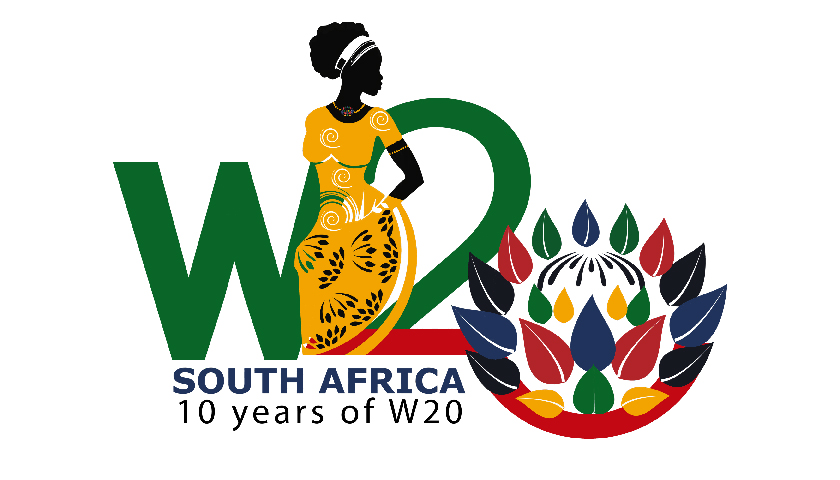For the first time in history, Women20 (W20), the G20’s official engagement group on women, has included modern slavery in its Communiqué, calling on G20 leaders to address this global crisis.
This marks a breakthrough in consensus achieved under South Africa’s presidency, and through the sustained advocacy of survivor leaders and global partners.
The W20 is calling on G20 Leaders to take decisive action to eliminate modern slavery from global supply chains – recognising that eradicating exploitation is not only a moral imperative but an economic one, essential to fair competition, sustainable growth, and women’s empowerment.
Modern slavery, including forced labour, forced marriage, debt bondage, and human trafficking, remains a critical global issue.
Ahead of the W20 International Summit, Walk Free is calling on the G20 to recognise this grave economic injustice, which disproportionately affects women and girls.
G20 countries should prioritise this issue and implement stronger due diligence laws, import bans, and coordinated policies to protect workers and ensure accountability.
Walk Free recommendations
To effectively combat modern slavery, Walk Free urges G20 countries to:
- Enact legislation requiring large businesses and publicly funded entities to undertake mandatory human rights due diligence to identify and remediate forced labour risks.
- Strengthen reporting frameworks with enforceable penalties and maintain a publicly accessible repository of modern slavery statements.
- Introduce additional legal measures to prevent human rights harms in value chains, including import controls, Magnitsky-style sanctions, and public company lists for non-compliance.
G20 purchasing practices often drive exploitation in low-income countries at the frontline of global supply chains. Electronics, garments, and solar panels are among high-risk imports linked to forced labour.
Vulnerable groups, such as women and girls and migrant workers are disproportionately affected. Migrant workers are three times more likely to be in forced labour than other adult workers. Over half of the people living in modern slavery are exploited within G20 borders. Seven G20 members including India, China, Saudi Arabia, Russia, Indonesia, Türkiye, and the United States are among the top 10 countries with the largest number of people in modern slavery.
Given these risks, Walk Free is calling on G20 countries to take immediate and concrete steps to eliminate modern slavery from global supply chains.
The G20 represents 85 per cent of global GDP and sits at the centre of the world’s trading system. Coordinated action to eliminate modern slavery would drive meaningful change across global supply chains, improve protections for vulnerable workers, and ensure consistent international cooperation.
Establishing a standing G20 working group on decent work and human rights would help move beyond fragmented responses to achieve a tangible global impact.
A legacy moment for South Africa’s W20 Presidency
Under the banner of Ubuntu – Women in Solidarity towards Sustainable Socio-Economic Development, the W20 South Africa Presidency, supported by VOX FEMINA and Walk Free, placed modern slavery at the heart of this year’s social and economic agenda.
Through a survivor-led panel held in May at the W20 Inception Meeting hosted in Cape Town, a comprehensive Thematic Paper, and months of coordinated diplomatic engagement, delegates achieved consensus across all member economies to call on G20 Leaders to act.
This is a legacy achievement for South Africa, demonstrating African-led leadership in aligning gender equality, decent work, and economic reform with the global fight against exploitation.
For more information, visit walkfree.org
Statement from Jacqueline Joudo Larsen, Director of Gender Equality, Minderoo Foundation
“Modern slavery is not just a human rights issue — it is a gendered crisis. Women and girls face disproportionate risks through forced labour, forced marriage, and gender-based violence.”
“G20 leaders must embed gender-sensitive policies, invest in care and economic infrastructure, and ensure survivor-led solutions shape every part of their response.”
Statement from Katharine Bryant, Director of Operations, Walk Free
“With billions of dollars of goods at risk of forced labour each year, urgent coordinated action across G20 economies is essential. Policies must target high-risk industries and ensure corporate accountability across entire supply chains.”
“Listening to survivors and experts at the W20 Social Summit makes it clear. Collaboration between governments, businesses, and communities is the only way to end exploitation and protect the most vulnerable workers.”
Statement from Chantelle Stratford PSM, Principal Gender Specialist, VOX FEMINA
“This is feminist diplomacy in action. By embedding modern slavery into the W20 framework for the first time, South Africa and its partners have created a pathway for lasting reform – one that centres survivors, protects workers, and advances women’s economic equality.”
Statement from Prof Narnia Bohler-Muller, Head of Delegation W20 South Africa
“As Head of Delegation, I affirm the W20’s urgent call to eradicate modern slavery. We must confront the invisible economies of exploitation with visible acts of justice, dignity, and care. This recommendation is about human rights, but it is also about inclusive prosperity and leaving no woman or girl behind.”
